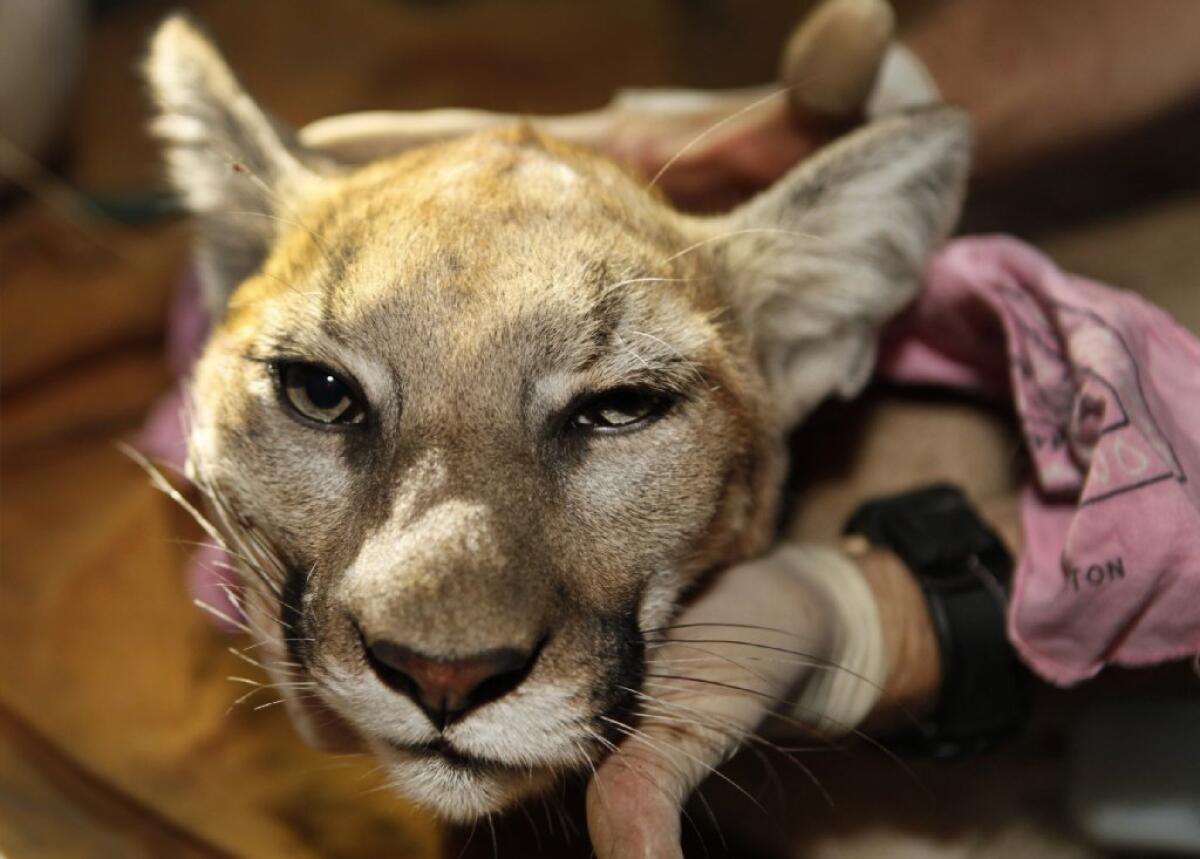Mountain lions’ genetic diversity hindered by Southland freeways, homes

- Share via
Hemmed in by freeways and other development, the few mountain lions living in the Santa Monica Mountains are predictably -- and dangerously -- losing genetic diversity.
Researchers suspected as much, but a new analysis of the big cats finds that, in their isolation, the mountain lions are inbreeding and exhibiting bizarre behavior, with instances of related lions killing one another, according to an article in Thursday’s edition of the journal Current Biology.
Mountain lions have been monitored by the National Park Service since 2002, but the recent paper is the first peer-reviewed study of the top predators in the Santa Monica Mountains National Recreation Area, which is bordered by two major freeways and densely packed subdivisions.
At the heart of the lions’ predicament is their inability to disperse and establish home ranges. Wildlife biologists expect nearly all young males and about half of young female lions to move away from their family group.
To the consternation of scientists who are working to save the animals, not a single young mountain lion has successfully left the Santa Monica Mountains. In the last decade only one young lion has been able to cross safely.
That continued biological isolation has led to “social interactions that we think are likely to be pretty rare or nonexistent in a naturally functioning population,” said Seth Riley of the National Park Service, the paper’s lead author.
“There’s almost no movement out,” Riley said. “That’s resulting in fathers mating with daughters, adult males killing close relatives or killing their offspring.”
The researchers found that the mountain lions in the Santa Monicas had the least genetic diversity of any group of lions in the West. In fact, Riley said that the park’s 8 to 10 mountain lions were likely to display the genetic anomalies experienced by endangered Florida panthers, which, through inbreeding, developed defects such as holes in their hearts and reproductive problems.
Healthy, genetically diverse animals are able to withstand disease and overcome injury and environmental changes. Riley said that while the park’s mountain lions have not exhibited any genetic problems, “it’s just a matter of time until those things occur,” he said.
Mobility and connectivity with other populations is vital to the long-term survival of the mountain lions, Riley said. That means assisting animals over, under or around the freeways. The National Park Service, the California Department of Transportation and local agencies have been working for more than a decade to obtain funding for a wildlife overpass.
@julie_cart







